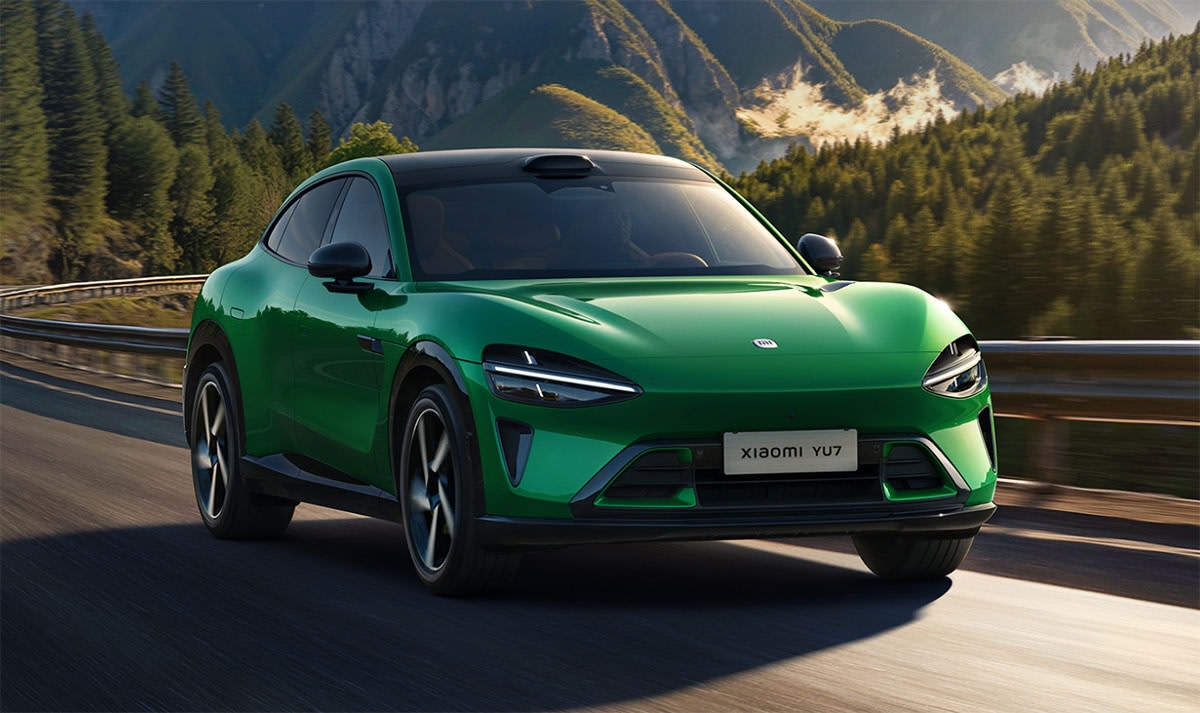From smartphones to EVs: Xiaomi’s rapid rise
Xiaomi, a Chinese technology company expanding its presence beyond products like smartphones into electric vehicles, has revealed that it’s considering overseas sales as early as 2027. Lei Jun, Xiaomi’s CEO, shared the news Wednesday following the automotive division receiving 200,000 orders in three minutes at the end of June for its upcoming YU7 SUV, directly competing with Tesla’s Model Y.
Tesla has been struggling to gain momentum in China, posting a 6.8% year-over-year decline during Q2 and having eight consecutive months of year-over-year sales declines before snapping the cold streak in June with a 0.83% annual increase. While BYD retained the largest market share in China among EV makers in May, Xiaomi’s SU7 SUV was the country’s leader in E-Segment (executive or full-size car) sales. While Xiaomi likely won’t be making it to the U.S. anytime soon, its serious consideration of global expansion is among the last things Tesla wants to hear, especially as Elon Musk’s company struggles this year in other markets, like much of Europe.

Xiaomi
Charting Xiaomi’s map to establish a global presence
Xiaomi Auto is one of China’s fastest-growing EV makers, but it must overcome some significant challenges to pave a path toward global expansion. Backlogged orders are one of Xiaomi’s primary roadblocks. Chinese consumers’ interest in the company is promising for investors, but Xiaomi confirmed that drivers will have to wait over a year on average to receive an ordered YU7. Non-refundable YU7 orders reached 240,000 in the first 18 hours in late June. Xiaomi’s CEO even suggested that those in urgent need of a vehicle who have pre-ordered a YU7 should consider purchasing an Xpeng G7, Li Auto i8, or Tesla Model Y, according to Yicai Global. Local publication Sina Technology reports that Xiaomi’s Auto Phase II factory, which was completed in June, is urgently recruiting to ramp up YU7 production. The standard YU7 has wait times of up to 15 months, while the Max variant has the shortest wait time of about 9.5 months.
The automaker also appears to have room for improvement in quality control, as its SU7 finished last in the 2025 Q1 China automobile quality ranking in the segment of large BEV sedans, according to CarNewsChina. Xiaomi appears to be taking this area seriously, with its CEO noting: “Knowing Xiaomi’s cars would be scrutinized by millions of netizens, that every flaw would be magnified 10‑thousand‑fold, we prioritized quality above all from day one [for the YU7],” says Yicai Global. Once Xiaomi resolves its production bottlenecks, establishes a consistent track record of quality control, and delivers widespread customer satisfaction in China, international expansion challenges include, but aren’t limited to, fulfilling countries’ varying regulatory requirements and establishing reliable sales, distribution, and service networks.

Xiaomi
Final thoughts
Xiaomi is one of the most promising up-and-coming Chinese EV makers, especially with its ability to turn cars into smart automotive platforms via its comprehensive digital ecosystem. However, Xiaomi must focus on optimizing its local presence in China before expanding globally, and the company’s significant production delays make the prospect of going international by 2027 a challenging task. The YU7’s rollout is a pivotal moment for Xiaomi, as it presents an opportunity to demonstrate quality control and production ramp-ups for a product that will directly compete with China’s best-selling vehicle in 2024, Tesla’s Model Y.